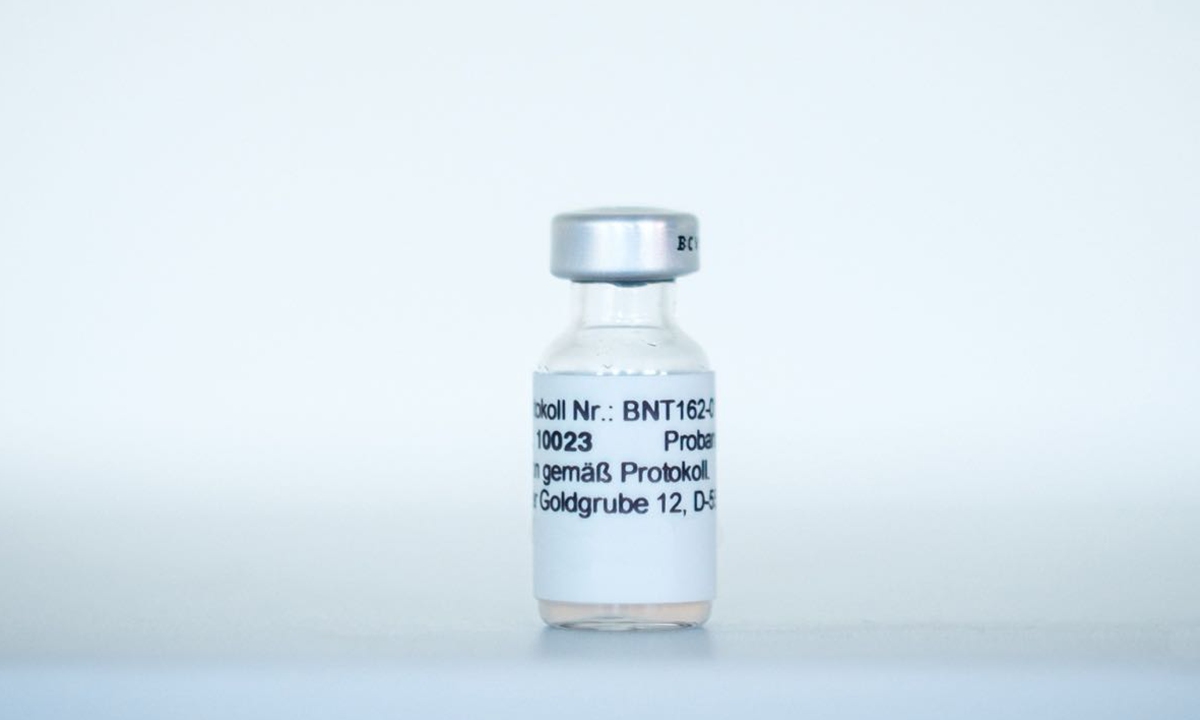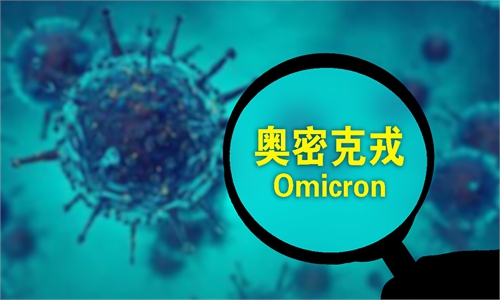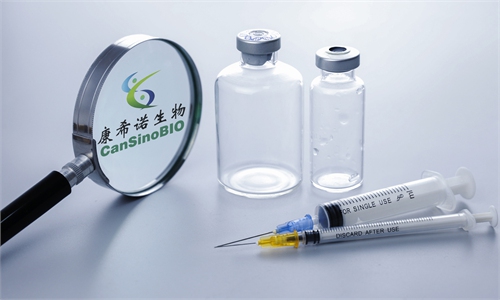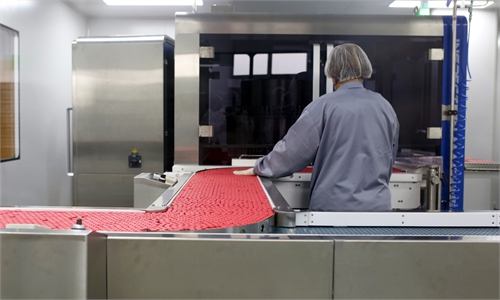Fosun releases data of first clinical trial in Chinese adults, showing robust results

The COVID19 vaccine BNT162b2 co-developed by Fosun Pharma and BioNTech Photo: Courtesy of BioNTech
Robust SARS-CoV-2 neutralizing antibody and strong SARS-CoV-2-specific T-cell responses were detected after BNT162b2 vaccination in the first phase 2 trial of an mRNA COVID-19 vaccine conducted in the Chinese mainland, according to a report the Global Times obtained from Fosun Pharma, the Chinese vaccine partner of BioNTech, on Monday.
The vaccine was proven safe and well tolerated up to one month after the second dose, indicating a favorable risk-benefit profile for Chinese adults, according to the report.
The results were concluded from a clinical trial conducted by Fosun on the BNT162b2 vaccination in healthy or medically stable individuals across two clinical sites in China.
The company revealed the results of the trial and the preprint version of the results had been published on the website of The Lancet on May 19.
Media reports said on Monday Chinese authorities had approved the trademark of "fubitai" for the vaccine in the mainland.
However, when asked whether these steps are positive signals for the vaccine's approval in the Chinese mainland, Fosun Pharma said that "it is just a regular release of phased data of the trial," refusing to make further comments.
Fosun Pharm has allegedly submitted the clinical trial data of the BNT162b2 vaccine to China's state regulators for rolling review since April 2021.
The vaccine has been included in the Hong Kong and Macao special administrative regions' inoculation campaigns since March 2021 and became available on the island of Taiwan in September 2021.
The company is still in communication with health authorities over the approval of the COVID-19 BioNTech-Fosun mRNA vaccine in the Chinese mainland, a co-CEO of Fosun International revealed to media in March this year.
Although having been utilized globally, the latest report is the first to show that BNT162b2 administered as a two-dose regimen at 30 μg, 21 days apart, elicited a robust immune response and was generally well tolerated in Chinese adults who were healthy or had stable pre-existing disease, read the report.
A total of 959 participants received at least one injection, being it a shot of the vaccine or placebo. The participants were recruited between December 5, 2020 and January 9, 2021. Seroconversion rates one month after the second dose were 99.7 percent and 0.8 percent respectively for the two groups, according to the report.
BNT162b2-elicited sera at one month after the second dose also neutralized SARS-CoV-2 variants of concern Alpha, Beta and Delta, read the report.
The data cut-off date for this analysis was February 07, 2021, according to the document. So it does not give any data on the vaccine's efficacy against the dominating Omicron variant that was firstly discovered in South Africa in November 2021.
Some observers said this would cast more uncertainty on the approval of the vaccine in the Chinese mainland as Chinese vaccine manufacturers have been trying to develop Omicron-specific or next-generation vaccines to deal with the rapidly mutating virus.
For example, three inactivated vaccines against Omicron developed by major Chinese vaccine producers Sinopharm and Sinovac have been approved for clinical research in Hong Kong.
Chinese vaccine developer CanSinoBIO's COVID-19 mRNA vaccine has received the approval for clinical trial application in China in April. The inhaled booster vaccine developed by CanSinoBIO also proved able to elicite a potent immune response against the Omicron variant after inactivated COVID-19 vaccine priming, reports said.




